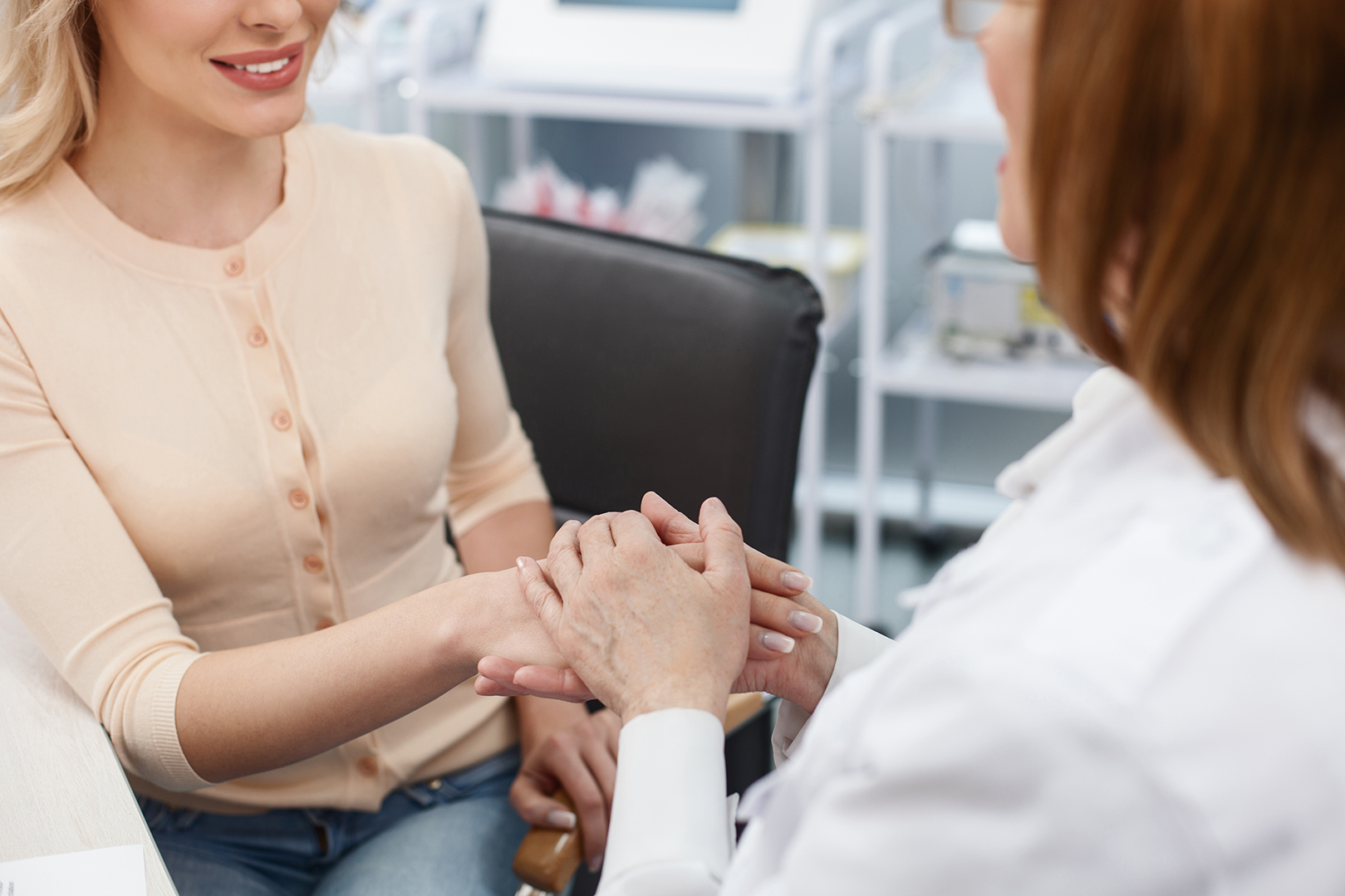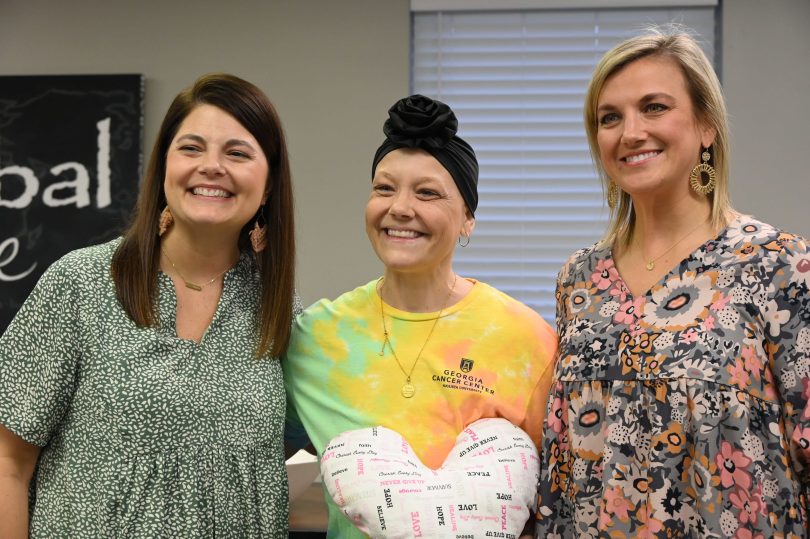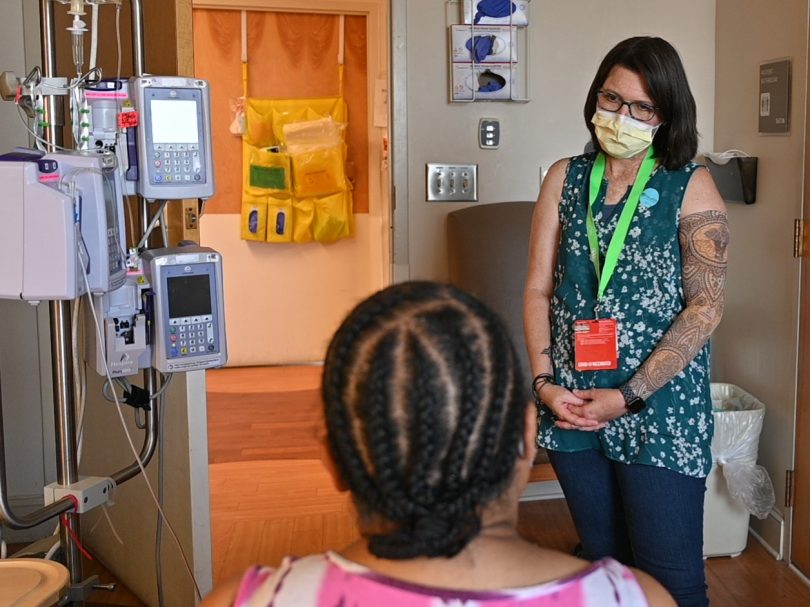“Painful sex isn’t something people talk about,” said Dr. Barbara Henley, a urogynecologist with Augusta University Women’s Health, “but it’s far more common than most realize.”
The exact statistics aren’t certain – because it’s a subject people are reluctant to discuss – but it can affect women of any age and there are several common causes.
A question of position
One of the most common causes – and one that’s easily remedied – is pain caused by certain positions.
“Sometimes a woman may experience painful sex when there’s contact with her cervix,” Henley said. “The first step is to simply try a different position and see if that helps.”
Anxiety alert
If you are inexperienced or if you have experienced sex that was painful, you may be tensing up in expectation of pain – and those contracted muscles fulfill that expectation.
“Try a vibrator,” Henley suggested. “Some type of foreplay, perhaps using a device, may be helpful to help relax those muscles and help you be more comfortable.”
If your pelvic floor muscles are very tight, your OBGYN might recommend that you avoid Kegel exercises (they can make muscles even tighter) and might also suggest that you visit a physical therapist who can help you retrain and soften those muscles.
Endometriosis and your period
The endometrium, or the lining inside your uterus, can sometimes go haywire, growing outside of your uterus and onto your ovaries, fallopian tubes and even inside your pelvis. During your monthly cycle, the tissue thickens, breaks down and bleeds – but since it has nowhere to go, it stays trapped in your body, potentially developing cysts and scar tissue.
Cue the pain.
Pain can happen at anytime, but this disorder can make sex particularly painful. Possible treatments include pain medication, hormone therapy and surgery to remove excess tissue.
Postmenopausal problems
Menopause ends your monthly period (yay!) but also brings with it some not-so-fun changes, which can include pain during intercourse due to postmenopausal dryness and vaginal atrophy.
A lack of estrogen following menopause leads to decreased lubrication in the vaginal canal. And it’s that dryness that can thin and shrink the tissues, leading to vaginal atrophy, a condition where the vaginal canal narrows. However, a course of vaginal estrogen cream can help the condition and soften the tissue, making it more moist and pliable, and vaginal dilators can also be used to help stretch the area.
Pelvic floor muscle dysfunction at any age
“Pelvic floor muscle dysfunction can come as a huge surprise, since many women have never heard of it,” Henley said. “It can occur in women who have had pelvic surgery, trauma to the pelvis, spine or back issues and pelvic misalignment.”
In some cases, there may not be a clear reason for the dysfunction. Women can live with pelvic floor muscle dysfunction for years, but it can worsen over time.
Treatment starts with a physical therapist who specializes in pelvic floor muscle dysfunction, who will perform a full assessment and pelvic exam and target therapies based on these findings. Therapy typically involves one or two sessions weekly for about 12 weeks and focuses on pelvic floor muscle massage to help relax muscles. Patients are also taught how to do this therapy at home.
Talk it out
However, none of these therapies will be as successful if women don’t reach out for help, Henley said.
“What can happen is that women who are experiencing these kinds of intimacy issues avoid sex, which can lead to depression, feelings of inadequacy and relationship problems,” she said.
With so many treatment options available – many of which provide relief quickly and are noninvasive – it’s important for women having issues with painful sex to contact their OBGYN and start the process of treatment.
“Be open and honest, both with your partner and with your physician,” Henley said. “You don’t have to struggle alone with this.”





